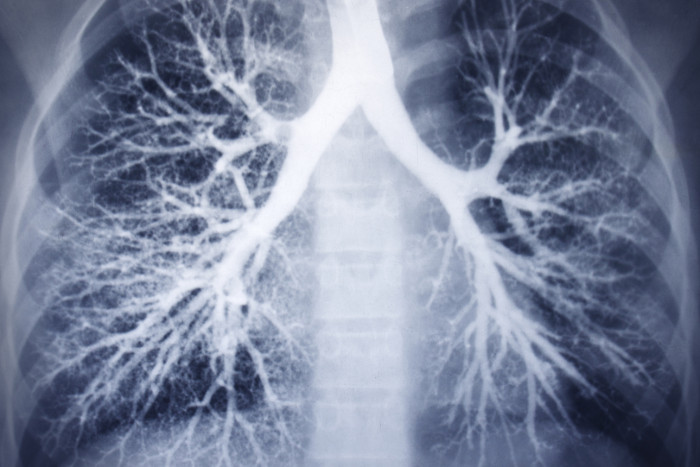Bronchial thermoplasty: a promising option for severe asthma
Washington University School of Medicine has several studies underway to test a new technology for the treatment of asthma

Adults with severe, persistent asthma that is not well controlled with inhaled corticosteroids and other medication have a new nondrug option for treatment. Based on research led by Washington University physicians, the US Food and Drug Administration approved the Alair Bronchial Thermoplasty System for use in such patients in 2010. Since then, Washington University physicians have led the way in applying the new technology and have several continuing studies underway.
Physicians perform bronchial thermoplasty as an outpatient procedure, introducing a catheter into the lungs to deliver controlled heat to the airway walls, reducing excess smooth muscle and preventing narrowing of airways in patients with asthma.
“Many patients with severe asthma are already taking the best drug therapy we have and are still experiencing debilitating symptoms,” said the study’s lead US investigator, Mario Castro, MD, MPH, a Washington University pulmonary specialist at Barnes-Jewish Hospital. “This device provides a meaningful new treatment for such patients.”
Several ongoing trials
Since the device’s approval, Castro and his colleagues, including Alexander Chen, MD, and Adrian Shifren, MD, have treated nearly 50 patients with severe asthma and have several ongoing trials using the thermoplasty system. One trial examines ways to predict which patients are most likely to benefit from the technology. Another newly launched study involves the use of MRI imaging and xenon gas to determine which areas of the lung should be treated.
Preliminary results from the AIR2 Trial, a five-year, double-blind, randomized trial to evaluate the safety and effectiveness of bronchial thermoplasty, demonstrated a reduction in asthma attacks, emergency room visits, hospitalization and lost work and school days due to asthma. The one-year results were published in the American Journal of Respiratory and Critical Care Medicine in early 2010.
In July 2011, Castro and his colleagues published two-year results demonstrating that the benefits of the treatment persist at least two years following the procedure. The paper appears in the Annals of Allergy, Asthma and Immunology. They are continuing to track these patients to monitor their progress.
Castro heads a clinic at the Jacqueline Maritz Lung Center at Washington University School of Medicine devoted to the evaluation of patients referred for bronchial thermoplasty. For more information about the procedure or appointment contact 314-454-8917 or 877-888-5864 and for ongoing clinical trials, call 314-747-3063.







